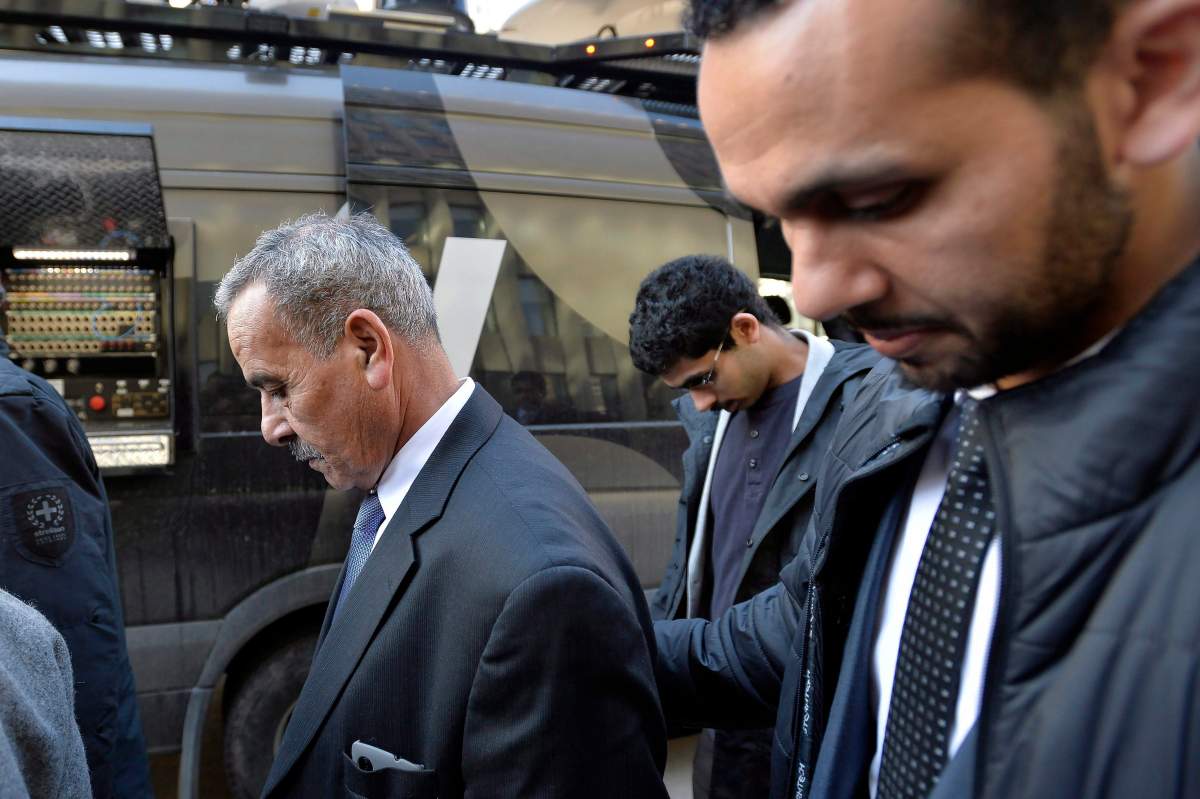The Ontario appeals court has thrown out the convictions of two men sentenced to life over an alleged al-Qaida-linked plot to attack a Toronto-bound passenger train.

In a decision released Tuesday, the court ordered a new trial for Raed Jaser and Chiheb Esseghaier, who were arrested by the RCMP in 2013 and found guilty of terrorism in 2015.
The appeals court set aside their convictions in a unanimous ruling that said “a legal error by the trial judge” had deprived Jaser of his preferred method for selecting jurors.

The pair were arrested following Project Smooth, an RCMP national security investigation that began in 2012 and involved an undercover FBI informant who infiltrated the alleged plot.
Esseghaier is a Tunisian who came to Canada in 2008 and was a doctoral student in Quebec. He had allegedly travelled to Iran and received “direction and guidance” from al-Qaida “elements,” police alleged.
Jaser is a former Markham, Ont., school van driver and mover from Abu Dhabi. A Toronto Muslim leader said Jaser’s father had approached him about his son’s religious views.

The Public Prosecution Service of Canada said it intended to proceed with a second trial. It could also appeal the decision to the Supreme Court of Canada.
The appeal centred on the difference between static and rotating “triers” — those who decide whether to accept a challenge by either the Crown or defence to a potential juror.

Get daily National news
WATCH: New trial ordered for 2 men found guilty in Via Rail terror plot

Rotating triers are two people who will serve on the jury, and they change (rotate) as each additional jury member is sworn in, according to Canada’s Criminal Code.
Meanwhile, static triers are two people, usually appointed by a judge, who hear and determine all challenges until the entire jury has been selected, but who do not themselves become members of the jury.
Leah West, a national security law expert at the Norman Paterson School of International Affairs, said rotating triers are now the standard because there is a greater risk of bias with static triers.
“Two people have a huge impact on how the jury gets made up,” she said.
Following the appeal decision in their favor, Jaser and Esseghaier can apply to be released on bail, she said.
As recently as December, the case was cited by the government as a successful disruption of a terrorist attack, as well as an example of the ongoing interest in targeting trains and rail infrastructure.
“The trial judge’s error here took one of the three options, the exclusion of unsworn jurors while using rotating triers, away from Jaser,” the three justices wrote in their decision.
Other high-profile cases have been overturned due to similar errors, including that of a man convicted of 2nd-degree murder in a 2012 shooting at Toronto’s Eaton Centre.
“Fair jury selection is especially important in cases like this with saturation level publicity,” said Megan Savard, an appeal lawyer for Jaser.
Savard said the fundamental difference between rotating triers and static triers was that a jury selected by rotating triers is chosen by a larger group of people, resulting in a more impartial jury.
WATCH: Men found guilty in Via Rail terror plot granted new trial

Jaser had wanted rotating triers during jury selection but did not get them, she said. “Mr. Jaser has been in jail since his arrest in 2013 waiting for a fair trial in front of jury chosen legally.”
Stewart.Bell@globalnews.ca
- Anti-feminist ideology ‘increasingly relevant’ to national security: CSIS
- Shooting at Rhode Island ice rink kills 2 during youth hockey game: police
- Savannah Guthrie issues new plea for mother’s return as police clear family
- They ‘ran into gunfire’: Impact of the Tumbler Ridge shooting on first responders










Comments
Comments closed.
Due to the sensitive and/or legal subject matter of some of the content on globalnews.ca, we reserve the ability to disable comments from time to time.
Please see our Commenting Policy for more.